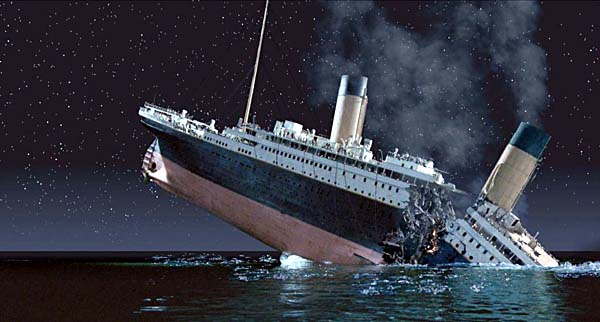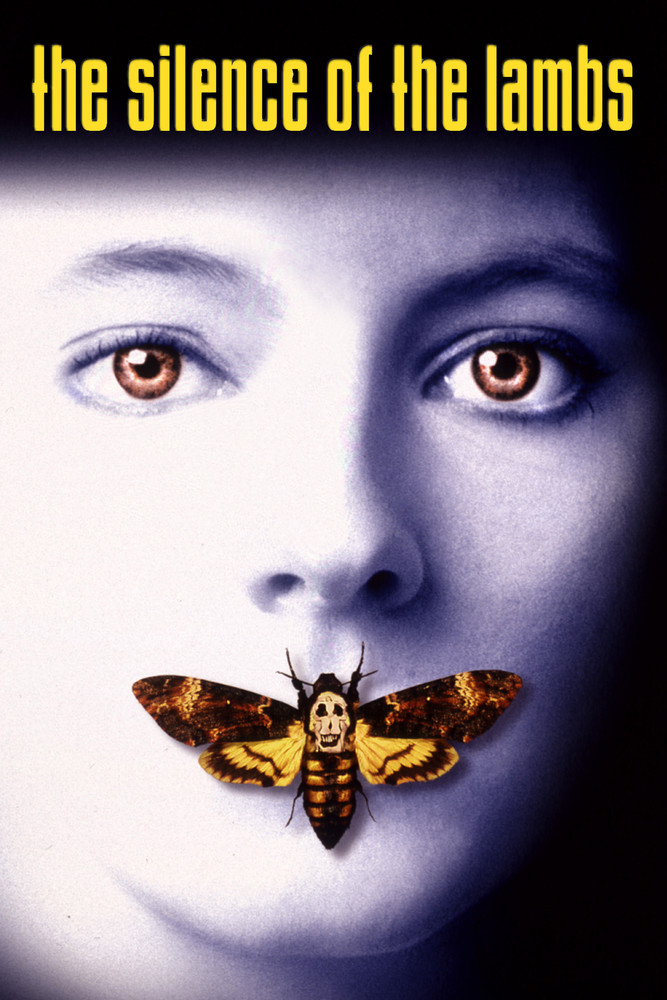1997—Titanic, James
Cameron
Nominated: As Good as it
Gets, The Full Monty, Good Will Hunting, L.A. Confidential
Should have won: Amistad
Be sure to see: The Fifth
Element, Jackie Brown, The Relic
“Sleep soundly, young
Rose. I have built you a good ship; strong and true. She's all the
lifeboat you'll need.”--Thomas Andrews
Many
movies have a love it/hate it stigma. Movies where there seems to be
no middle ground. Pulp Fiction comes
to mind. Perhaps the best example of this is Titanic,
meaning the 1997 version. As it
stands, Titanic is the
second of only three remakes to win best picture. The first and third
are Ben-Hur, a 1959
remake of a 1925 film, and The Departed, 2006's
winner which is a
remake of a Chinese movie called Infernal Affairs. This
Titanic might not be
considered a remake by many because of the subplots, but let's face
it, there have been many tellings of the sinking of the Titanic.
There is a 1953 Barbara Stanwyck version (which I found better than
this one) and a 1958 telling called A Night to Remember
which I've never seen but have
heard it was the best. 1933's winner Cavalcade hints
at a Titanic cruise and there have been a number of other trips on
the doomed ship to hit the silver screen. Of course this Oscar winner
is by far the most popular.
When
Titanic bumped
Jurassic Park from the
all-time box office gross list, I never thought it would be topped.
In my mind, it got the new title not because it was good enough for
everyone to see but because of repeated customers consisting of
flocks of teenage girls. These aren't facts, mind you, just what I
figured. In 2009, Avatar (also
directed by James Cameron; pretty impressive one director has the top
two highest grossing movies ever made) finally took over the top
spot, but debate will always linger. These figures do not take
account of inflation. It is widely accepted that the true box office
champ is Gone With the
Wind.
But
as for the film itself, as mentioned it is a love it/hate it attitude
people have. It seems hating on it is the accepted attitude
and fans of the movie get bitter over it. I'll admit when I saw it
when it came out, and then again about a year later, I hated it both times. I
vowed never to watch it again and was outraged it won and Amistad
(my choice for best picture)
wasn't even nominated. Sixteen years later I sat down and watched it
again for this blog and I'm not ashamed to say it sort of grew on
me...slightly. I still can't believe it sold so many tickets; I still
say it was nowhere near best picture of the year with Amistad,
Good Will
Hunting, As
Good as
it Gets,
and L.A.
Confidential released
that year. I've always said not only is it not the best picture of
1997, it isn't even the best movie released that year named after a
boat! It isn't the garbage that I once thought it was but I still had
many problems with the movie. Those of you who know me know I don't
go with public opinion; I march to the beat of my own drum. And if I
say I didn't like it, it is because I didn't like it not because it
is not cool to admit I do. It has its moments. It is an okay movie.
But I still didn't love it that much.
The
movie opens with the exploration of the wreckage of the doomed vessel
via underwater camera, looking for a long lost priceless diamond worn
by Louis XVI that went missing in 1792. Through insurance claims it
is proven to have been aboard the ship. This expedition is headed by
Brock Lovett, a man played by Bill Paxton, a bad actor who tends to pop up in some great movies like The
Terminator, Weird
Science, Aliens, Nightcrawler
and True Lies.
In the safe, they find no necklace but a drawing of a woman wearing
it. It turns out this woman is Rose Bukater, a woman who is still
alive at 101 years old. Rose is played by Gloria Stewart who was
nominated for best supporting actress for this roll though all she does is
sit in a chair. I wonder how many fantastic performances were snubbed
that year for hers. By the way, if you want to see a better movie
with Gloria Stewart in it see 1933's The Invisible Man.
Anyway, she recognizes the drawing on television and seeks out the
team to tell them her story. It is a story of how she and her wealthy
family took the voyage across the Atlantic in the unsinkable ship,
how she met a man from the lower class on board, and how they fell in
love.
The
movie is sort of a true story since there really was a Titanic that
was said to be unsinkable but met a fateful demise the morning of
April 15, 1912. There is also a few characters in the movie based on
real people like The Unsinkable Molly Brown (though her real name was
actually Maggie), the captain, a couple of the guests and my favorite
character, Thomas Andrews, who is the ship's architect. But the main
characters are completely fictitious, which is fine. I can suspend my
belief for the movie.
The
poor young man Rose meets is Jack Dawson who saves her from jumping
off of the ship one night (though I don't think she would have) and
they end up falling in love with each other. I know I could add a lot
more to this plot but what is the point? It isn't much you haven’t
seen before: Girl is engaged to guy. Guy mistreats girl. Girl meets
other guy. Girl and new guy fall in love. One of my problems with
this movie is if the roles were reversed and Jack is engaged and runs
off to a girl he meets on the boat, he would be a cheating bastard. We
all know this country has a “man bad; woman good” attitude. Don't
believe me? Watch Maury sometime. The fact is, Rose is a
cheater, straight up. But I don't blame the movie for going this
route. I guess her fiance, Cal, is a bad guy; he did hit her once in
the movie which isn't cool. But other than that, his only guilt is
that he is rich and snobby. I don't think he was villainous enough to
be that bad a guy, even when he uses a child to help save his own
life. By the way, Jack is supposed to be poor. So poor that he later
tells Rose's company he sleeps under bridges. But he also tells Rose
all he has is ten dollars in his pocket. Ten dollars was a nice chunk
of change in 1912 right? I went to google and found a rate calculator. According to that site, Jack had about $243.
The
major problem I have with this movie is I didn't care about the
romance that much. I wish they had made a movie about all of the
passengers. Let me learn about the rich people, the poor people, and the
crew. The best scenes in the movie (other than the crash) is after
Jack and Rose chitchat about his drawings and the women gossip about
Molly Brown, the captain speaks to Andrews about whether or not to
speed up the ship so soon. I want to know about the background of the
ship. I want to know about these people. The captain--what is his
record like? What other boats has he guided across the ocean? All of the passengers, not just Jack and Rose. But I know it is
told in flashback form so it must be through Rose's eyes. I get it.
And I get who the intended audience is. I can accept that audience is
not me and certainly don't blame James Cameron for making it that
way. Money talks and obviously this movie made money shout. It
also has a “Rich people are evil; poor people are divine” feel.
One scene shows Rose's mother has servants on the boat. She looked
like a maid. I suppose she could have been a crew member being
hospitable to the guests but she was aiding in the fitting of a
dress as though they were in a mansion at home. Did crew members of a ship do that? Maybe they did, I don't
know.
Rose
tells Jack she can no longer see him and then goes back to him five
minutes later, I would guess roughly three hours of real time passed.
They are on a boat out in the open not in seclusion and they kiss. As
mentioned, I find it funny how women think this is such a romantic
movie but if the roles were reversed and Jack was the engaged
audiences would hate him. But they end up in the iconic scene of the
first half where Jack draws Rose's picture wearing only the locket.
Four points I'd like to make are 1. Yes, Kate Winslet looked pretty
good. Just being honest here. 2. I bet Rose's arm would fall asleep
pretty fast in the pose she was in. 3. It should be noted that the
closeups of Jack's hand drawing were of the hand of director James
Cameron drawing and 4. The scene is capped by a big laugh. Of course
they end up having sex, not in the drawing room but in a steamy car.
You know it is hot in that car but in typical movie sex fashion, she
covers her breasts to keep a PG-13 rating. I wonder how many realistic sex scenes there are
in movies, including the post sex rest period.
The
ship doesn’t hit the iceberg until 1:38 in and I wish it had forty
minutes before. Something I wondered about that scene is, after the
ship hits, someone records the time. Since they are in the middle of
the ocean, what time zone are they using?
For
me (and many people, men mostly I would presume) the whole movie
builds up to the sinking of the ship. The entire sequence is very
impressively done. It is the one part of this movie I though was
better than the Stanwyk one. It was terrifyingly realistic, even with
the little bloopers here and there like the rubber parts of the set
that were supposed to be metal. It didn't matter. It sinks a bit, it
breaks, and it sinks the rest of the way. It is a long, drawn out
scene paying close attention to all of the peril. It is a very good
sequence.
According
to the movie, 700 people found boats and around 1500 drown. One of
whom is Jack and many have ripped Rose for not sharing the door she
was using as a raft. On a MythBusters episode I believe they said it
would tip with someone else on it anyway. In the midst of the madness
of the sinking ship, there is a sweet image of an old couple cuddling
in bed, facing their demise together, and one of a mother reading her
doomed children a bedtime (dead time?) story. I heard there is a
blooper just after that scene of the children running on the deck but
I didn’t spot it. Maybe you can.
At
the end Rose says there is no record for a Jack Dawson but why not?
Sure not as a passenger on the boat since he won his ticket gambling
but not even record of him as a citizen? He has no papers? And why
didn't Lovett ever ask Rose where the necklace was? I realize it was
Rose who sought him out, it was her purpose, but he had to have taken
that opportunity to ask where it is. She mentions it in her tale, he
never asked where it is. Now in the flashback, Cal says Rose has it
in her coat but maybe old Rose didn't share that with Lovett's crew.
I've always said there is so much license one can have when telling a
first person story. Rose isn’t going to know what Cal says if she
isn’t around but I'm sure she could assume he would have remembered
it was in her coat. But Lovett would surely have asked about it since
that was the goal of his expedition, right?
All
in all, the epic love story that is James Cameron's Titanic
was nowhere near as bad as I remember it being when I was 20. But it
could have been so much better. I had a lot of problems with it but
there were a lot of positives, too...And
I don't plan on revisiting it for another fifteen years.













